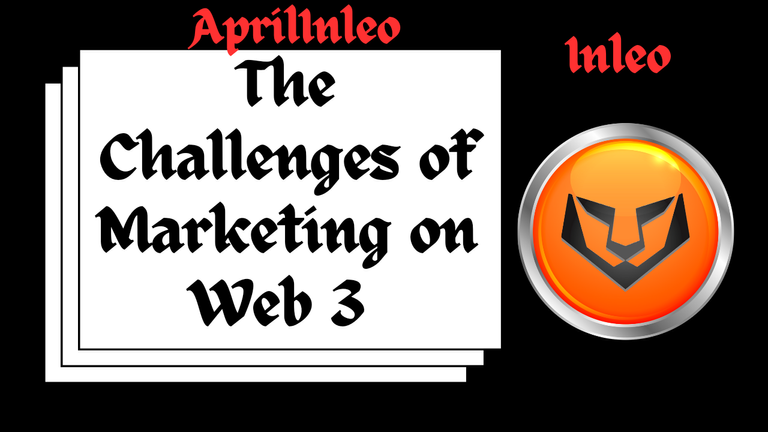
Venturing into web 3 realms like blockchain, cryptocurrency, and decentralized networks presents brands with fresh perspectives. However, this shift introduces novel considerations absent from traditional digital marketing. While the potential is vast, transitioning initiatives to these platforms brings growing pains demanding thoughtful navigation.
This article will delve into the tangible obstacles brands and marketers encounter when embracing web 3 strategies.
Difficulty in Grasping Novel Technologies
Although blockchain and cryptocurrency possess immense potential, most people struggle to comprehend these concepts. Terms like NFTs, DAOs, and decentralized social platforms remain puzzling and abstract for the average individual. Without a basic grasp of how the new models operate and offer value, it becomes challenging for most audiences to engage with web 3 initiatives. This lack of understanding creates a significant obstacle for brands aiming to generate excitement and communicate the value of their strategies in this emerging space.
Technical Barriers Stand in the Way
Implementing complex blockchain functions in marketing campaigns presents technical challenges beyond comprehension issues. Creating tokenized reward systems, community voting mechanisms, branded digital collectibles or other web 3 features necessitates specialized developer expertise that many marketing teams lack. Simultaneously, the underlying infrastructure supporting large-scale decentralized technologies like public blockchain networks is still evolving to handle widespread marketing adoption. The immaturity of protocols and absence of user-friendly tools pose barriers that require resolution.
Search Engine Optimization Remains an Obstacle
One challenge early adopters of web 3 marketing face is gaining search engine visibility for decentralized content and platforms. Without proper indexing across distributed networks, content on Web 3 suffers - even for high quality technical articles.
A real world example illustrates this hurdle. I published an in-depth article on an emerging crypto project on Hive which is a web 3 publishing platform. However, after several months it had only gotten around 20 views despite positive early feedback. When testing theories for the lack of traction, it became clear search engines were not adequately indexing the decentralized domain. To test this, an identical version was uploaded to a traditionally hosted site. Within a shorter time period, organic search traffic drove over 2,000 views through search discoverability.
See how good SEO boosts websites! Yet brands face hurdles promoting web 3. Why? Search engines don't index decentralized networks fully. With poor searchability, marketing web 3 reaches just a few. Tech giants must blend the new protocols with traditional model.
Fuzzy Impact Measurement
Online marketing has clear metrics: clicks, views, sales and signups measure success. But for web 3 efforts like DAO community-building, gamification or social token rewards, it's hard to quantify impact directly.
Creative ways are still emerging to check if engaging users via special NFT rewards, DAO voting pools or other avant-garde features yields real behaviors or business gains. However, the absence of set measurement systems creates obstacles.
Regulations Introduce Doubts
As a decentralized realm, web 3 inhabits a semi-legal gray zone in numerous nations and jurisdictions. Laws around crypto assets, NFTs and DAOs are evolving swiftly but are murky or restrictive in some regions. This regulatory uncertainty restricts what brands feel at ease experimenting with, from a compliance viewpoint.
People don't want risks from new technologies like security tokens or tokenized rewards. There are no clear rules yet, making it hard to use these without legal trouble. Fully utilizing innovative models can lead to backlash if not done properly.
Building Trust is Paramount
Web 3 projects must provide real value while respecting privacy, security and transparency to succeed. If tokenized rewards or social engagement are seen as insincere or "cash-grabs", they won't gain traction. Creating genuine worth for users is key.
Businesses need to put in extra effort to gain credibility in this new space. They must encourage real community participation. They must show clear benefits beyond just money. Without trust, the new value ideas won't work.
Conclusion
There are big roadblocks, but web 3 has huge potential if done thoughtfully. By taking small steps, learning from others, prioritizing trust and community over short-term gains - brands can slowly make progress. They can overcome web 3 marketing hurdles over time.
The winners will be those who love to try new things and find creative solutions. For marketers willing to work hard, the long-term chances of web 3 are worth overcoming obstacles.
Brands can overcome web 3 hurdles by understanding the issues. Learn from others, and Introduce initiatives thoughtfully. With small victories, more building blocks are added towards web 3's value potential. Progress may feels gradual, but steady, community-first approach serves early adopters well.
Posted Using InLeo Alpha
As the owner of a micro-business, this is a topic I've been thinking very hard about !
To pick up on one of your thoughts - I'm almost certain that Google etc are deliberately not including Web3 platforms in their search results because they see them as a threat and want to kill them.
One of the biggest barriers I'm finding with Web3 marketing is geography. My business sells physical goods, and only to the UK (shipping is too expensive and problematic for exports). But the Web3 audience is everywhere and resistant to the kind of segmentation tools traditionally used (which I think is a good thing !), so it's impossible to target advertising spend on a single geographical location.
Something I'm seriously thinking of doing is creating a separate Hive account and using it for things like unboxing videos, "how to" articles etc - very much the content creation side, with links in my website to drive traffic to them as they build into an archive of useful information. Any Hive readers who also find the content then becomes just an added bonus. It's not "hard" marketing, more a way to draw people in who are interested.